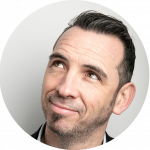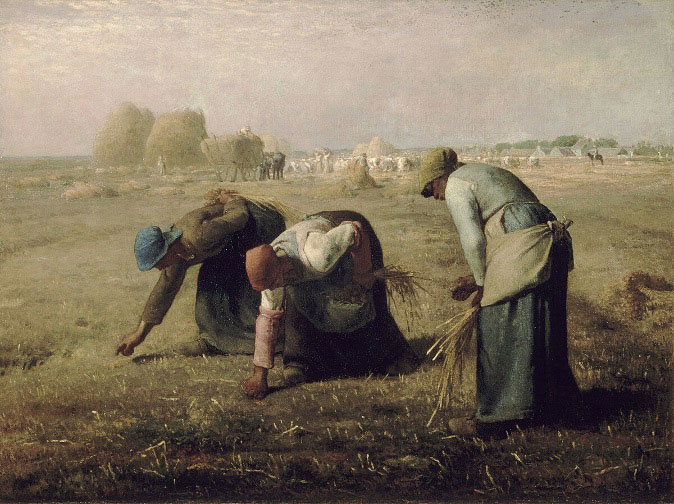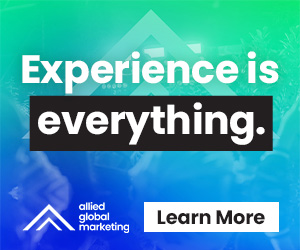 In the full-on rush to embrace all things AI, we should try and avoid some of the fundamental mistakes our ancestors made and most of all we should never lose the ability to think critically, writes Dave Tallon.
In the full-on rush to embrace all things AI, we should try and avoid some of the fundamental mistakes our ancestors made and most of all we should never lose the ability to think critically, writes Dave Tallon.
At the turn of the last century, we were mostly all farmers.
You know, work the land, eat the food, hail, rain, or shine, farmers.
Back then between 60% and 80% of us worked the land, or related fields (pardon the pun). But over time technology changed the nature of work and moved us from working in fields, to working in factories. From living in rural villages, to cities. You know, the industrial revolution. And the rest is, *waves arms around*, all this.

Paying the Price
Now, only around 2% of us work the land. And we’re all mostly happy about that. It was hard living, and progress came with huge benefits (despite initial growing pains). We got goods (stuff), improved standards of living, employment, infrastructure, social mobility, health care, sanitation (what have the Romans ever done for us etc). We advanced. It was good. And across almost all measures things greatly improved. But….. We also left things behind and paid a price. In moving from fields to factories, we severed our link to the land. We moved from understanding and respecting it, and the food it produces, to being disconnected from it. And often, destroying it.
Food has become an abstract concept. We mostly don’t care where it’s from, or how it’s grown. We don’t know the fertilisers, feed, weather, geography, or the seasons that support it.
In Ireland one third of our daily calories are ultra-processed foods. Industrially manufactured. Made from refined ingredients, additives, and preservatives. Convenient and highly palatable. Calorie-dense and nutritionally poor. They’re not really food at all but industrially produced edible substances.
They’re also linked to diabetes, heart disease and cancer. Nice. We prioritise time for “other things”. And food and cooking are now measured on ease, and speed. We also lost our connection to circadian rhythms, and a healthier relationship with work and leisure (and natural light). But I digress. In our shift from field, to factory, to office, we drifted from the truth. And we unlearned.
Excuse the ramble. But you see where this is headed. History doesn’t repeat, but it does rhyme.
We’re at the end of the beginning of another revolution. One that may be more transformational. Certainly quicker. The Artificial Intelligence gold rush is full tilt. And marketing is feeling the cold, brutal impact. Like a January bus stop. Painful. Head on. It’s collapsing things. Like time. And labour.
Goldman Sach’s CEO, David Solomon, in a recent FT interview said “the work of drafting an S1 — the initial registration prospectus for an IPO — might have taken a 6 person team two weeks to complete, but it can now be 95% done by AI in minutes” and went on to say “The last 5% now matters, because the rest is now a commodity”. 95% is the drudgery. Bullshit work. But as Rory Sutherland pointed out, just like college essays, sometimes there’s value in that drudgery. Putting things together. Making mistakes. Learning as you go. Deeply. Meaningfully. No squeeze. No juice.
The Doorman Fallacy
In his book Alchemy, Rory describes the doorman fallacy. How when we narrowly define something to its most obvious function — like a hotel doorman’s job of “opening doors” — we risk missing out on the true, multifaceted value of it. We can eliminate, shorten, remove, speed up, but what are the unintended consequences. What do we lose?
Food delivery and streaming services are great, but it means we go out and socialise less. A recent research paper found that the more we use AI, the more we lose our own critical thinking. Like farming, when you outsource, you drift. From truth. From meaning. And you can end up eating crap.
Is this it?
Progress is great. We rarely want to go backwards. But history is also littered with Pandora’s box tales. Progress at a price and all that. What price are we willing to pay? Marching forward, what will we leave behind? What will we lose, to gain? Our relationship with words. Our culture? With art and design? With emotions? Or with our own humanity? Will these be severed? Or weakened?
We’re already marketing to machines. Already filling the world with bite sized calorie heavy, nutritionally light, ultra processed content. We’re already creating performance junkies, high on clicks. Already using synthetic insights from machines. And we’ve already drifted from romancing the ordinary, and the art of seduction, to lean more heavily on the darker arts of stalking, sneaking, sniping and aggressive submission. Is this it? Is this our future?
Annie Dillard once wrote, “How we spend our days, is how we spend our lives”. What will matter in our days ahead? What will mean something? What will we value? And what will we be willing to fight for? Goldman Sachs CEO David Solomon makes the point that it’s the 5% we’ll need to focus on now.
But so much of what matters, still lies in the 95%. In his book on the practice of writing novels Haruki Murakami tells the story of two men who visit Mount Fuji to see what all the fuss it about. One is clever, one allegedly not. The clever one looked up at it, moved to different vantage points, then claimed, “yep, got it”, and went home. The other didn’t get it, so he climbed the mountain. On the summit, he lay down exhausted but understood it now in a way his friend could not.
When we worked the land ourselves, we served our communities. Food was locally produced. Shared. Our relationship with the natural world, and with food was richer. We felt the earth. It was tough but meaningful. AI is great, but as Uncommon said in their Cannes merch, “stop wangin on about AI, and make some good work”. In the work we find the meaning. We plough the land. We check the weather. We till. We sow. We harvest. We do the hard work and take the time, to understand. To see. And to act with meaning. What the hell is left if we don’t do this?





















